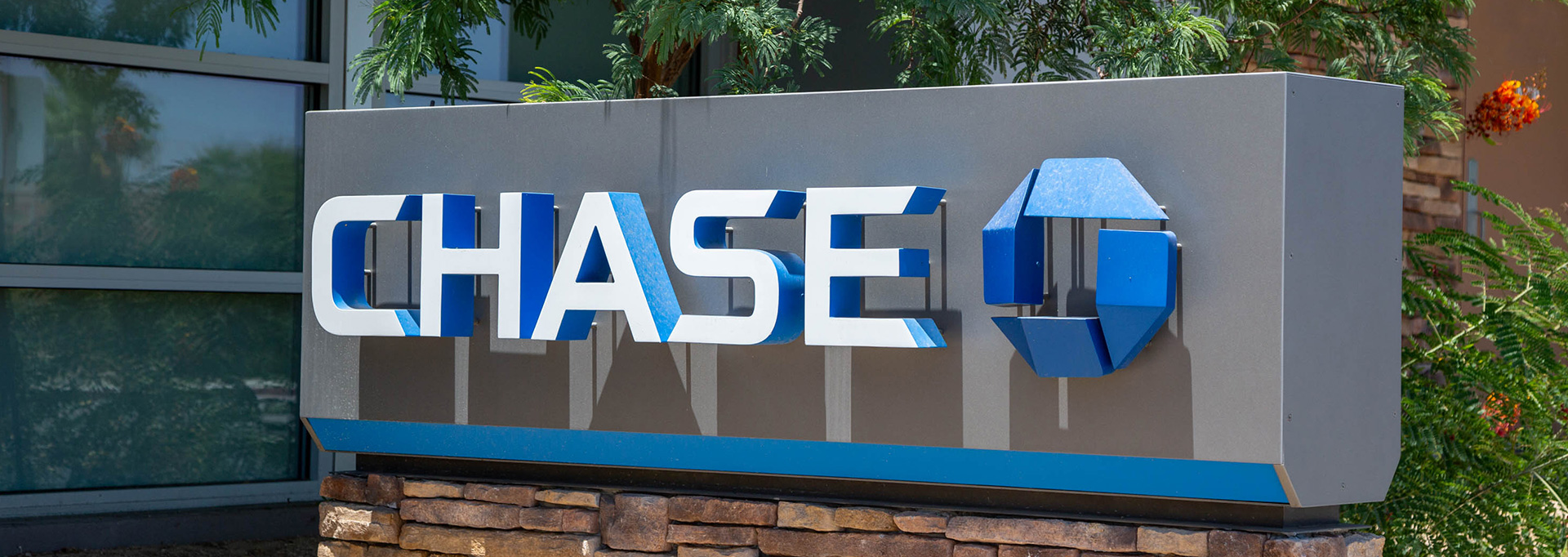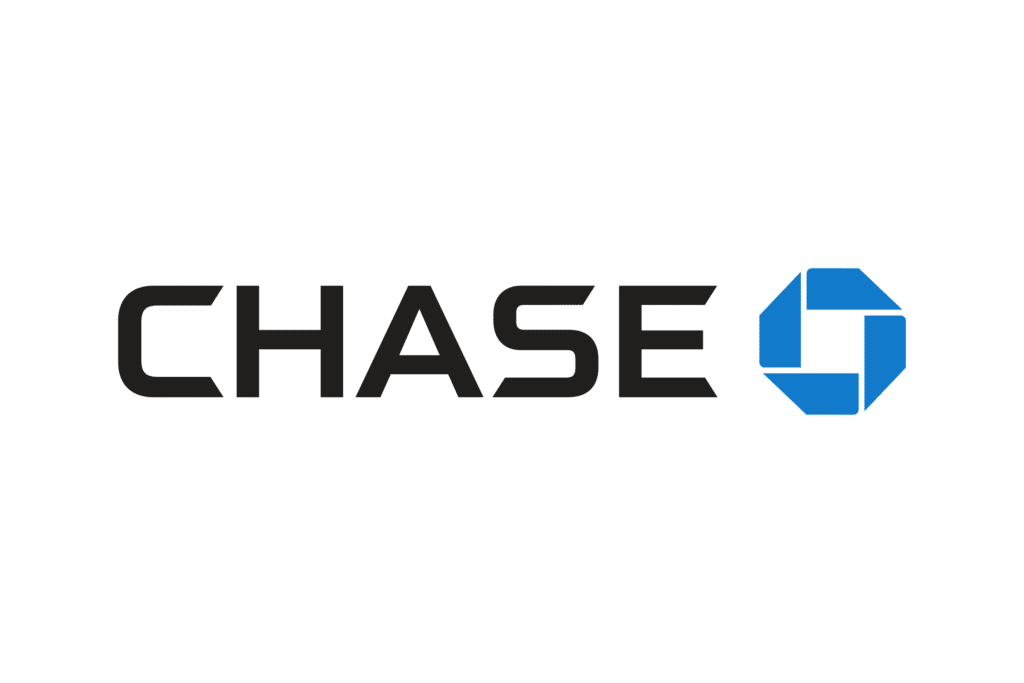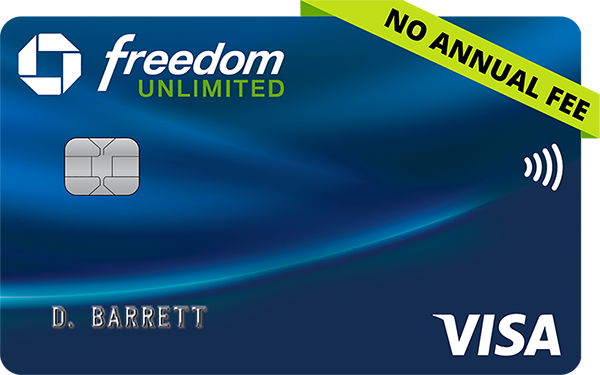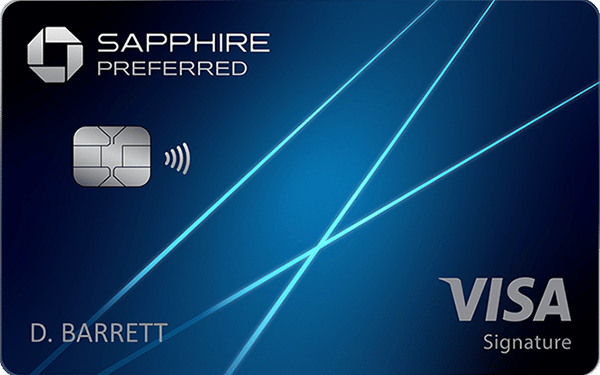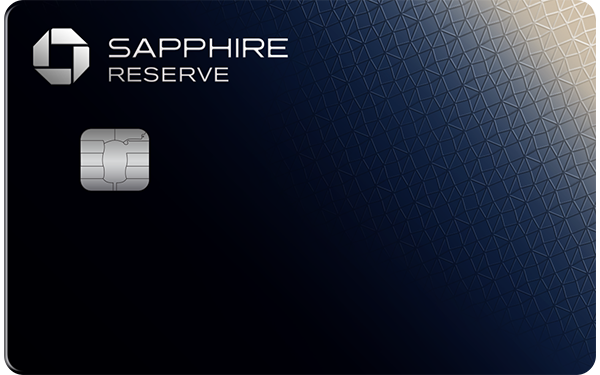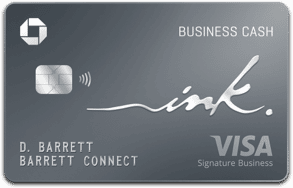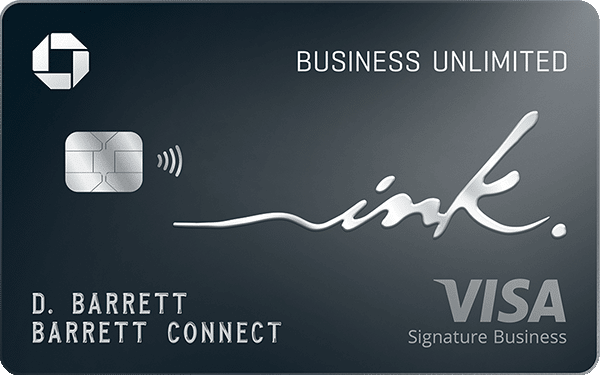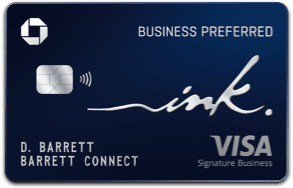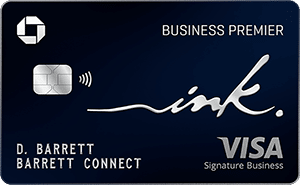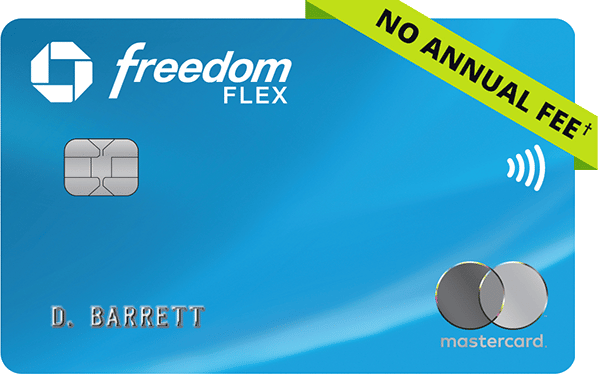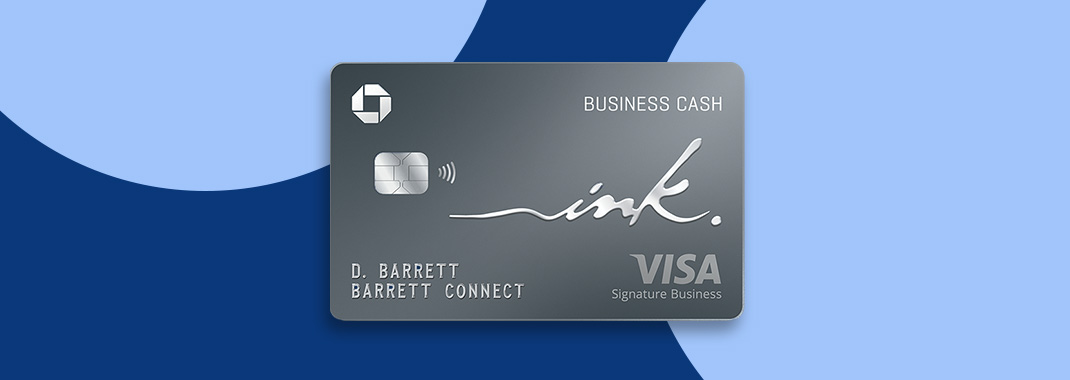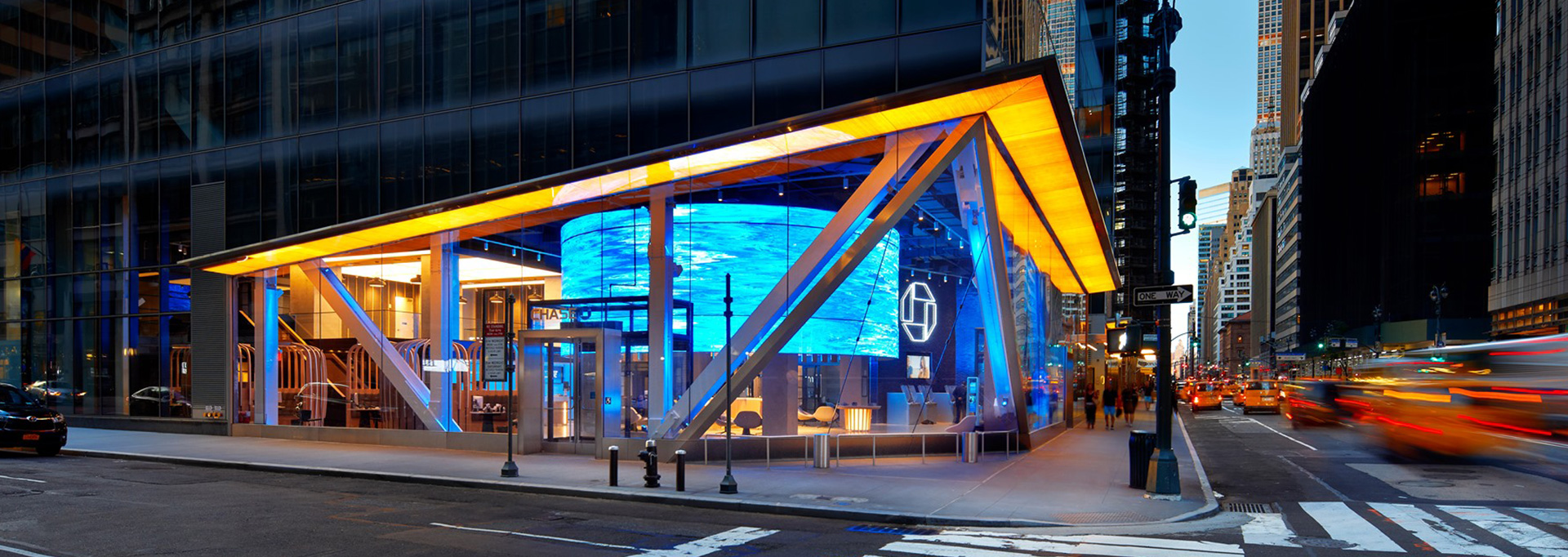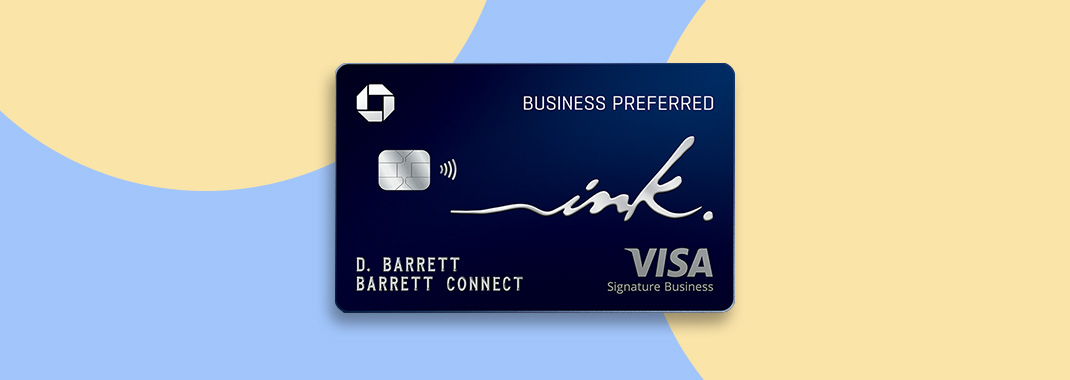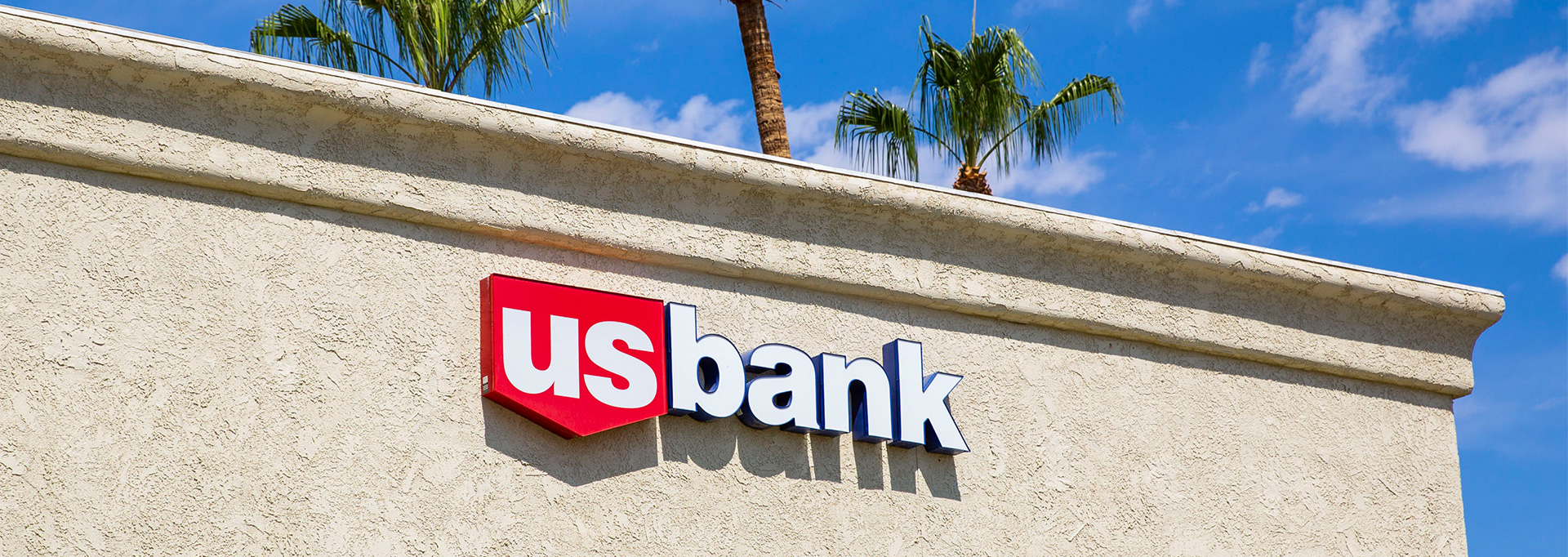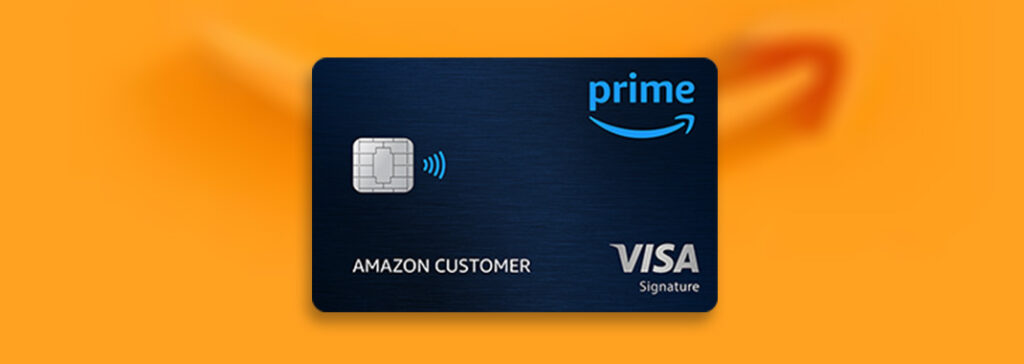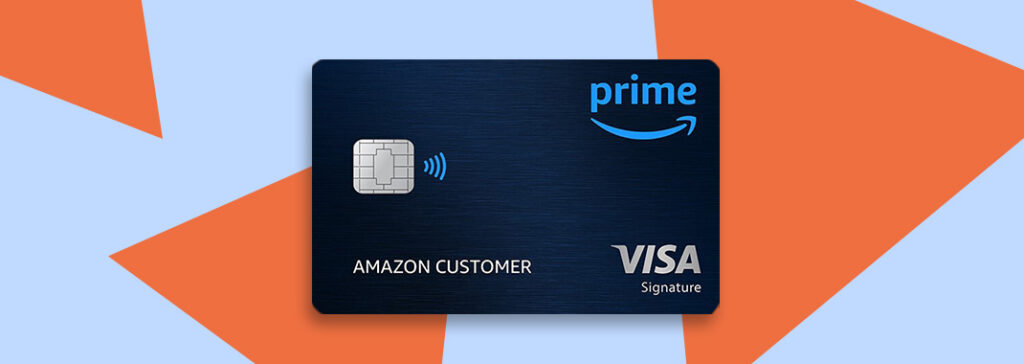Most products on this page are from partners who may compensate us. This may influence which products we write about and where and how they appear on the page. However, opinions expressed here are the author's alone, not those of any bank, credit card issuer, airline or hotel chain.
All information about the Chase Freedom Flex was collected independently by Slickdeals and has not been reviewed by the issuer.
One of the best ways to get free money is to find a coupon code that unlocks a valuable sign-up bonus or limited-time promotion for a product or service that you already need. If you're in the market for a new checking or savings account, rewards credit card or investment account, promotional bonus offers could make a good deal even more attractive.
Currently, Chase Bank is advertising several valuable welcome offers to new banking customers. With the right Chase coupon, you could earn between $100 to $3,000 when you open a qualifying new account. Read on for a breakdown of the best Chase bonus offers and see how they might help you put a little extra cash in your pocket this year.
Current Chase Bank Promotions and Offers
Chase Bank Account Offers
| Bank Account | Intro Bonus | Learn More |
|---|---|---|
|
| $300Expires October 15, 2025
New Chase checking customers enjoy a $300 bonus when you open a Chase Total Checking® account with qualifying activities | Open Account |
|
| $100Expires October 15, 2025
New Chase checking customers enjoy a $100 checking account bonus when you open a Chase Secure BankingSM account with qualifying transactions. Qualifying transactions include debit card purchases, Zelle®, ACH credits, Chase QuickDepositSM or online bill payments. Your bonus will appear in your account within 15 days after completing the qualifying transactions. | Open Account |
|
| Up to $3,000Expires October 15, 2025
Enjoy up to a $3,000 bonus when you open a new Chase Private Client CheckingSM account with qualifying activities. After offer enrollment, you have 45 days to transfer qualifying new money or securities to a combination of eligible personal checking, savings and/or personal J.P. Morgan Wealth Management non-retirement accounts (excludes Chase Personal and Business CDs, Chase business checking and savings accounts, J.P. Morgan Self-Directed Investing accounts, J.P. Morgan Wealth Management Personal Advisors accounts, and J.P. Morgan Wealth Management retirement accounts). Your bonus will be determined on day 45. Maintain your new money for 90 days from offer enrollment and we'll add the bonus into your account within 40 days. | Open Account |
|
| $300-$500Expires July 17, 2025
Earn up to $500 when you open a new Chase Business Complete Checking® account. For new Chase business checking customers with qualifying activities. | Open Account |
Chase Credit Card Offers
| Credit Card | Intro Bonus | Learn More |
|---|---|---|
|
|
$200Cash Bonus
Intro Offer: Earn a $200 Bonus after you spend $500 on purchases in your first 3 months from account opening |
Apply Now Rates and Fees |
|
|
75,000Chase Ultimate Rewards Points
Earn 75,000 bonus points after you spend $5,000 on purchases in the first 3 months from account opening. Dollar Equivalent: $1,575 (75,000 Chase Ultimate Rewards Points * 0.021 base) |
Apply Now Rates and Fees |
|
|
100,000Chase Ultimate Rewards Points
Earn 100,000 bonus points + $500 Chase TravelSM promo credit after you spend $5,000 on purchases in the first 3 months from account opening. Dollar Equivalent: |
Apply Now Rates and Fees |
|
|
$750Cash Bonus
Earn $350 when you spend $3,000 on purchases in the first three months and an additional $400 when you spend $6,000 on purchases in the first six months after account opening |
Apply Now Rates and Fees |
|
|
$750Cash Bonus
Earn $750 bonus cash back after you spend $6,000 on purchases in the first 3 months from account opening. |
Apply Now Rates and Fees |
|
|
90,000Chase Ultimate Rewards Points
Earn 90,000 bonus points after you spend $8,000 on purchases in the first 3 months from account opening. Dollar Equivalent: $1,890 (90,000 Chase Ultimate Rewards Points * 0.021 base) |
Apply Now Rates and Fees |
|
|
$1,000Cash Bonus
Earn $1,000 bonus cash back after you spend $10,000 on purchases in the first 3 months from account opening. |
Apply Now Rates and Fees |
Finding ways to earn or save more money has the potential to do wonders for your personal finances. Even small influxes of cash from earning bank bonuses could help you build a modest emergency fund, pay down credit card debt or cover unexpected expenses.
Chase Bank Bonuses
Chase Total Checking® Account
- Our Rating 4/5 How our ratings work
- APYN/A
- Minimum
Deposit RequiredN/A -
Intro Bonus
$300Expires October 15, 2025
New Chase checking customers enjoy a $300 bonus when you open a Chase Total Checking® account with qualifying activities
Chase Total Checking® is among the best entry-level accounts. It typically offers new customers a sign-up bonus, and it’s fairly simple to waive the monthly fee. However, it's worth noting that it doesn’t offer many valuable features or benefits and it’s not an interest-bearing checking account.
Overview
Chase Total Checking® is a basic checking account that doesn’t offer many premium features. However, if you can easily meet the qualifications required for the new account bonus (and to waive its monthly fee), it’s a good option for those who want an entry-level account.
Pros
- No minimum opening balance
- Multiple ways to waive monthly fee
- Access to nationwide Chase branches and ATM network
Cons
- Monthly maintenance fee
- Account does not earn interest
Chase Total Checking is a basic checking account that offers customers a robust set of account management features through its mobile app and secure website. Plus, you'll get access to the bank's nationwide footprint of branches and ATMs.
You won't get a ton of value for its monthly service fee, but this fee can be waived in one of several ways. Even so, the Chase Total Checking Account does give you access to a few convenient features, such as Chase QuickDepositSM and the ability to use Chase Bank's vast network of ATMs.
If your financial situation easily qualifies for a fee waiver, then the generous $300 promo for New Chase customers may be worth your while.
How to get the bonus:
- Open a new checking account through the link on this page (Chase coupon is automatically applied)
- Set up a direct deposit of your paycheck, pension or government-issued benefits and receive at least $500 in direct deposits within 90 days of account opening.
- Once requirements are met, your $300 new customer promo will be deposited into your account within 15 days.
Chase Secure Banking℠ Checking Account
- Our Rating 3/5 How our ratings work
- APYN/A
- Minimum
Deposit RequiredN/A -
Intro Bonus
$100Expires October 15, 2025
New Chase checking customers enjoy a $100 checking account bonus when you open a Chase Secure BankingSM account with qualifying transactions. Qualifying transactions include debit card purchases, Zelle®, ACH credits, Chase QuickDepositSM or online bill payments. Your bonus will appear in your account within 15 days after completing the qualifying transactions.
Chase Secure Banking℠ is best suited for people who have had spending issues in the past, or who are new to checking entirely. It does not offer overdraft protection, paper checks or wire transfers. While the $4.95 monthly fee cannot be waived, there is usually a sign-up bonus, which is a nice touch.
Overview
Chase Secure Banking℠ is an alternative-style checking account that aims to make it easier for certain customers to manage their money by stripping out features that could enable overspending, like overdraft protection and paper checks.
Pros
- No minimum opening balance
- Access Chase’s network of in-person branches and fee-free ATMs
- No fees for money orders or cashier’s checks
Cons
- Monthly service fee cannot be waived
- Does not offer overdraft protection, paper checks or wire transfers
- Non-Chase ATM fees
Chase Secure Banking is a second-chance deposit account for people who are recovering from hardships or financial setbacks. It's rare for secured bank accounts to offer new customer bonuses, which is why this $100 promotion is so special.
While the $4.95 monthly service fee means that your account won’t necessarily be free, Chase does waive the fee for customers who receive qualifying electronic deposits each month. Either way, this account features several valuable benefits, including zero fees on most everyday transactions. Read our full review of Chase Secure Banking.
How to get the bonus:
- Open a new account through the link on this page (Chase coupon is automatically applied)
- Complete at least 10 qualifying transactions within the first 60 days of coupon enrollment (account opening).
- Qualifying activities include debit card purchases, online bill payments, Zelle transactions, Chase QuickDepositSM and ACH credits. (Note: Direct deposit is not a qualifying transaction for this sign-up bonus offer.)
- Once requirements are met, your $100 new customer promo will be deposited into your account within 15 days.
Chase Business Complete Checking®
- Our Rating 5/5 How our ratings work
- APYN/A
- Minimum
Deposit RequiredN/A -
Intro Bonus
$300-$500Expires July 17, 2025
Earn up to $500 when you open a new Chase Business Complete Checking® account. For new Chase business checking customers with qualifying activities.
The Chase Business Complete Checking® account is an attractive option. It offers the convenience of one of the largest financial institutions in the country, and it frequently offers bonuses that are relatively easy to earn. While it does not allow you to accrue interest on your funds like some other popular small business checking accounts, it's still very much worth considering if you can meet the requirements to waive its monthly fees.
Overview
The Chase Business Complete Checking® account comes loaded with a valuable sign-up bonus and an assortment of helpful perks, so long as you can meet the requirements to waive its monthly fees. It’s a good fit for many business checking customers, regardless of business size.
Pros
- Generous signup bonus
- Several options to waive monthly fee
- Same-day deposits using QuickAccept℠ service
- Huge network of in-person branches and ATMs
Cons
- Monthly maintenance fee
- Overdraft fees are relatively high
- Limit on fee-free cash deposits and physical transactions
Chase Business Complete Checking is the bank's all-inclusive solution for sole proprietors, small business owners and enterprise-level businesses.
This account offers a deep bench of benefits and mobile and online tools for its customers. It does carry a $15 monthly maintenance fee that can be waived by meeting one of a number of requirements. Read our full review of Business Complete Checking.
New Chase customers can earn a cash bonus worth $300-$500 for opening a new Business Complete Checking Account and completing qualifying activities.
How to get the bonus:
- Open an account: You'll need to be a new Chase business checking customer and open new Chase Business Complete Checking account online or at a branch. You'll need a coupon code to access your offer.
- Fund your account: Deposit $2,000 or more of new money within the first 30 days of coupon enrollment. The new money cannot be existing deposits at Chase or its affiliates. Your new money deposit amount will be determined in the following manner at 30 days from offer enrollment:
- To qualify for a $300 bonus, fund with $2,000 - $9,999
- To qualify for a $500 bonus, fund with $10,000 or more
- Maintain the new money balance: Maintain a balance of at least $2,000 for at least 60 days from the offer enrollment to qualify for the $300 bonus; maintain a balance of at least $10,000 for at least 60 days from the offer enrollment to qualify for the $500 bonus. If new money deposit amount decreases below the threshold during the 60-day period, your offer amount may change or your checking account may no longer qualify for the offer.
- Complete five qualifying transactions: You will also need to complete at least five “qualifying transactions” within the first 90 days of opening your Chase business checking account. Qualifying transactions may include any of the following:
- Debit card purchases
- Chase QuickDepositSM (Make mobile check deposits through the Chase Mobile app)
- Chase QuickAccept® deposits (Accept credit card payments through the Chase Mobile app)
- ACH credits (Additional service fees of $25 per month for up to 25 payments may apply)
- Wire transfers (Both credits and debits)
- Chase OnlineSM Bill Pay
Chase Private Client Checking℠
- Our Rating 4/5 How our ratings work
- APY0.01%
The Annual Percentage Yield (APY), for Chase Private Client CheckingSM effective as of 06/20/2025 is 0.01% for all balances in all states. Interest rates are variable and subject to change. Additionally, fees may reduce earnings on the account.
- Minimum
Deposit Required$0 -
Intro Bonus
Up to $3,000Expires October 15, 2025
Enjoy up to a $3,000 bonus when you open a new Chase Private Client CheckingSM account with qualifying activities. After offer enrollment, you have 45 days to transfer qualifying new money or securities to a combination of eligible personal checking, savings and/or personal J.P. Morgan Wealth Management non-retirement accounts (excludes Chase Personal and Business CDs, Chase business checking and savings accounts, J.P. Morgan Self-Directed Investing accounts, J.P. Morgan Wealth Management Personal Advisors accounts, and J.P. Morgan Wealth Management retirement accounts). Your bonus will be determined on day 45. Maintain your new money for 90 days from offer enrollment and we'll add the bonus into your account within 40 days.
Despite being a premium bank account, Chase Private Client Checking℠ is remarkably accessible. With no minimum opening deposit requirement, anyone can open an account (although you'll need to maintain a fairly high balance to avoid its monthly maintenance fee). Members gain access to numerous valuable features, including personalized investing guidance, discounted interest rates on select loans and a total lack of ATM fees worldwide.
Overview
With Chase Private Client Checking℠, you can expect premium banking features coupled with a more personalized experience than what other, similar accounts offer. Anyone can open a Chase Private Client account, but you’ll need to maintain a remarkably high average beginning day balance to avoid its monthly fee.
Pros
- No minimum opening deposit requirement
- Priority access to banking, lending, small business and investment advisors
- Discounts on home and auto loans
- Attractive signup bonus
Cons
- High minimum balance required to waive monthly fee
Chase Private Client℠ is the bank's premium account package. Accountholders gain access to a variety of exclusive banking perks such as higher daily limits on deposits, no ATM fees worldwide (including refunds for non-Chase ATM fees) and access to a dedicated Private Client banker who can help you make the most of your banking relationship. Read our full review of Chase Private Client.
From now until October 15, 2025, new accountholders can earn a bonus worth up to $3,000 when they open an account and complete qualifying activities. The bonus breaks into three tiers, with the amount you earn determined by the amount you deposit into the account:
| Minimum Deposit | Bonus |
|---|---|
|
$150,000 |
$1,000 |
|
$250,000 |
$2,000 |
|
$500,000 |
$3,000 |
While this is one of the most valuable bank bonuses currently available—at Chase or any other bank—it's worth noting that this account carries a $35 monthly service fee. If you're interested in opening a Chase Private Client account, it's a good idea to make sure you meet the requirements to have this fee waived before you make your final decision.
How to get the bonus:
- Request an upgrade code, which Chase will email to you
- Meet with a Private Client Banker to open your account
- Transfer at least $150,000 of new-to-Chase money to eligible Chase accounts within 45 days of enrollment.
- Eligible accounts include personal checking and savings accounts and eligible J.P. Morgan Wealth Management non-retirement investment accounts opened in a Chase branch and serviced by a J.P. Morgan Private Client Advisor.
- After you have completed all the requirements, maintain the above balance for at least 90 days. After that, your bonus will be deposited into your new account within 40 days.
 Related Article
Related Article
Best Bank Account Bonus Promotions in July 2025
Chase Credit Card Bonuses
Chase Sapphire Preferred® Card
- Our Rating 5/5 How our ratings work
- APR19.99% - 28.24% (Variable)
- Annual Fee$95
-
Sign Up Bonus
75,000Chase Ultimate Rewards Points
Earn 75,000 bonus points after you spend $5,000 on purchases in the first 3 months from account opening. Dollar Equivalent: $1,575 (75,000 Chase Ultimate Rewards Points * 0.021 base)
The Chase Sapphire Preferred Card is one of the gold standards for earning travel rewards. It has a generous sign-up bonus and you can earn points on travel and dining expenses. The card does have an annual fee, but you can continue earning points through bonus categories and an anniversary points boost.
Overview
The Chase Sapphire Preferred is pretty flexible as it lets you transfer rewards points into miles or points several airlines and hotel programs. You can take advantage of strong transfer partners such as United, Southwest, Singapore Airlines, Virgin Atlantic and Hyatt. Similarly, you can book any reservation you want through the Chase Travel℠ portal. Although the card might not be ideal for the most frequent travelers, it has a built-in upgrade path, so when it’s time to level up your travel rewards game, you won’t have to start from scratch.
Pros
- Points are easily transferable to airlines and hotel partners
- Accelerated earnings on dining, travel & household purchases
- Excellent travel and purchase protections
- No foreign transaction fees
Cons
- Not ideal for the highest spenders
- $95 annual fee
The Chase Sapphire Preferred® Card (Rates and Fees) is one of the gold standards for earning travel rewards. This travel credit card helps users earn points quickly with accelerated rewards in everyday spending categories like travel and dining.
Cardholders enjoy perks like a $50 Annual Chase Travel Hotel Credit, 10% anniversary point boost and access to the Chase Travel℠ portal.
New cardmembers can earn 75,000 bonus points after using their credit card to spend $5,000 within three months of account opening. Read our full review of the Chase Sapphire Preferred Card.
Chase Freedom Flex℠
- Our Rating 4.5/5 How our ratings work
- APR19.49% - 28.24% (Variable)
- Annual Fee$0
-
Sign-Up Bonus
$200Cash Bonus
Receive a $200 bonus after you spend $500 in the first three months.
The Chase Freedom Flex card expands on the already lucrative Chase Freedom card. The Freedom Flex also gives cardholders access to Chase's ultra-valuable rewards platform, where you’ll get plenty of redemption options at good rates. Plus, if you have one of the program’s travel cards, you can transfer points from your Freedom Flex to your travel card account and get even more value and flexibility with how you redeem.
Overview
Getting more in cash back is a clear win for anyone who is considering the Freedom Flex card. This card is ideal for anyone who want to maximize cash-back rewards with the option to get more value with travel redemptions.
Pros
- Generous earnings on select rotating categories each quarter
- Cellphone and trip insurance coverage
- No annual fee
- Ability to convert rewards to transferable Ultimate Rewards points
Cons
- Can't transfer Chase points to travel partners unless paired with select products
The Chase Freedom FlexSM Card is an excellent cash-back credit card for people who are looking to maximize rewards. Cardholders can take advantage of its excellent rewards rate: 5% cash back on rotating categories when you activate (up to $1,500 each quarter), 5% back on travel booked through Chase TravelSM, 3% back on dining, including takeout and delivery, 3% back at drugstores and 1% back on other purchases.
As a new Freedom Flex cardholder, you’ll also earn a $200 sign-up bonus after you spend $500 in the first three months. Read our full Chase Freedom Flex Card review.
Chase Freedom Unlimited®
- Our Rating 4.5/5 How our ratings work
- APR18.99% - 28.49% (Variable)
- Annual Fee$0
-
Sign Up Bonus
$200Cash Bonus
Intro Offer: Earn a $200 Bonus after you spend $500 on purchases in your first 3 months from account opening
We like that the card offers a high flat rewards rate but also provides accelerated rewards on some common everyday spending categories. You’ll also get access to the Chase TravelSM portal, which allows you to use your cash-back earnings for travel rewards, gift cards and more. If you make this your primary card for most purchases you can quickly rack up a lot of rewards.
Overview
The Chase Freedom Unlimited card is unique for a couple of reasons. First, it comes with purchase protection and extended warranty protection you don’t see with some other cash-back cards. Second, you earn cash back in the form of points and when paired with another annual-fee earning Chase product, you can get even more value if you love to travel by transferring to partners.
That’s because while the Freedom cards are marketed as cash-back credit cards, they actually offer points. You can use those points to book travel through Chase at a rate of 1 cent per point. But if you have the Chase Sapphire Preferred® or Chase Sapphire Reserve®, you’ll get 25% and 50% more value on those travel redemptions, respectively. (Plus, the ability to transfer your points, too.)
Pros
- No category bonuses to remember; earn at least 1.5% back on everything
- No annual fee
- Generous travel and purchase protection benefits
Cons
- Can't transfer Chase points unless paired with another annual-fee Chase product
The Chase Freedom Unlimited® (Rates and Fees) is a valuable all-around credit card with no annual fee. This cash-back card earns a rewards rate of 5% cash back on travel booked through Chase TravelSM, 3% back at drugstores, 3% back on dining, including takeout and eligible delivery services and a flat-rate 1.5% back on other purchases. There are no rotating categories to track, caps on how much you can earn or excluded purchase categories.
To top it off, new cardholders can earn a bonus worth $200 after spending $500 on purchases within the first 3 months from account opening. This is competitive with the best sign-up bonuses currently available. Read our full review of the Chase Freedom Unlimited Card.
Chase Sapphire Reserve® Card
- Our Rating 4.5/5 How our ratings work
- APR20.24% - 28.74% (Variable)
- Annual Fee$795
-
Sign-Up Bonus
100,000Chase Ultimate Rewards Points
Earn 100,000 bonus points + $500 Chase TravelSM promo credit after you spend $5,000 on purchases in the first 3 months from account opening. Dollar Equivalent:
This card features an annual credit for travel purchases, which can offset the annual fee, plus bonus points when you sign up. You'll also get free access to tons of Priority Pass lounges and restaurant options around the world, along with access to the Chase Sapphire Lounge network.
Overview
If you’re looking to elevate your travel experience, look no further than the Chase Sapphire Reserve. When you first get approved, you’ll earn a generous sign-up bonus that can be used for travel-related spending booked through Chase Travel℠. Transfer the points to one of Chase’s airline or hotel partners and they’re potentially worth even more.
Pros
- An array of premium travel perks including access to Priority Pass lounges
- Easy-to-use $300 travel credit that helps offset card's annual fee
- Generous rewards rates for spending
Cons
- High annual fee may be a deterrent for some
- Perks are starting to get stale relative to newer competition
The Chase Sapphire Reserve® (Rates and Fees) is among the top premium travel cards available. While this credit card comes with a hefty $795 annual fee, the Sapphire Reserve is packed with travel perks that more than make up for the expense.
Right off the bat, the Chase Sapphire Reserve features a $300 annual travel credit. You also get free access to more than 1,300 Priority Pass lounges and restaurant options in airports around the world. Those lounges usually give you free food and drinks, cleaner bathrooms, fast internet and a comfortable place to sit outside of the ruckus of an airport terminal.
New cardholders can also earn a sign-up bonus of 100,000 points plus a $500 Chase TravelSM credit after they spend $5,000 during the first three months of account opening. Read our full Chase Sapphire Reserve review.
Ink Business Cash® Credit Card
- Our Rating 4.5/5 How our ratings work
- APR17.49% - 25.49% (Variable)
- Annual Fee$0
-
Sign-Up Bonus
$750Cash Bonus
Earn $350 when you spend $3,000 on purchases in the first three months and an additional $400 when you spend $6,000 on purchases in the first six months after account opening
Business owners looking to earn a high rate of cash back on common business expenses like office supplies and internet could get a lot of value from this card. The trade-off for the high cash-back rate, though, is a lower spend cap than you’ll find with other Ink Business cards.
Overview
The Ink Business Cash® is legendary for its offer of 5% cash back for purchases at office supply stores and on many telecommunications services, with no annual fee. And while 5% cash back sounds great, these rewards can be much more valuable when paired with another Chase credit card that allows transfers to airline miles or hotel points. In addition to earning excellent cash-back rewards, it also includes competitive introductory offers and provides cards for employees at no additional charge.
Pros
- No annual fee
- 5x back on a broad array of business spending categories
- Robust travel and purchase protections
- Don't need a full-fledged business to apply
Cons
- Businesses that don't spend on the category bonuses won't benefit
The Ink Business Cash® Card (Rates and Fees) is a valuable business cash-back card for entrepreneurs of all types. Earn an impressive rewards rate of 5% cash back on select business purchases. These include the first $25,000 you spend each account anniversary year at office supply stores and on phone, cable and internet services. Ink Business Cash also offers 2% cash back on up to $25,000 in combined purchases at restaurants and gas stations. You’ll earn 1% cash back on virtually all other purchases.
As a new cardholder, you can get up to $750 in bonus cash back: Earn $350 when you spend $3,000 on purchases in the first three months and an additional $400 when you spend $6,000 on purchases in the first six months after account opening. Read our full review of the Ink Business Cash.
Ink Business Unlimited® Credit Card
- Our Rating 4.5/5 How our ratings work
- APR17.49% - 23.49% (Variable)
- Annual Fee$0
-
Sign-Up Bonus
$750Cash Bonus
Earn $750 bonus cash back after you spend $6,000 on purchases in the first 3 months from account opening.
If you’re looking for a solid business credit card with unlimited earning potential, this could be it. With a 1.5% cash-back rate, it earns less than the other Ink Business cards, but you can put earning on autopilot with no spending limits or categories to juggle.
Overview
The Chase Ink Business Unlimited® credit card is one of the best business credit cards on the market, and if you use it right by pairing it with a Chase card with an annual fee, you can unlock access to valuable transferable Ultimate Rewards points that you can move to travel partners.
Pros
- No annual fee
- Easy earning structure of 1.5X back on everything with no limits
- Robust travel and purchase protections
Cons
- Businesses that spend more on bonus categories won't earn more in rewards
- 1.5X isn't the highest earning rate
The Ink Business Unlimited® Credit Card (Rates and Fees) is one of the best business rewards credit cards on the market, primarily because of its large upfront bonus. As a new cardholder, you’ll earn $750 in bonus cash after you spend $6,000 on new purchases within three months of account opening.
Ink Unlimited offers a simple flat-rate 1.5% cash back per dollar spent on all purchases. And, if you need employee cards, you can get them at no additional charge. Read our full review of the Ink Unlimited card.
Ink Business Preferred® Credit Card
- Our Rating 4.5/5 How our ratings work
- APR20.24% - 26.24% (Variable)
- Annual Fee$95
This fee includes extra cards for authorized users, such as employees, at no additional charge.
-
Sign Up Bonus
90,000Chase Ultimate Rewards Points
Earn 90,000 bonus points after you spend $8,000 on purchases in the first 3 months from account opening. Dollar Equivalent: $1,890 (90,000 Chase Ultimate Rewards Points * 0.021 base)
Those with travel and advertising expenses will like the high earning rates in these categories. One drawback is the modest annual fee, though many can offset this with the card’s earning potential.
Overview
The rewards you earn from the Ink Business Preferred Card can be transferred to 10 different airline partners including United, Southwest, Virgin Atlantic, Singapore and British Airways, as well as hotel partners Hyatt, Hilton and Marriott.
Unlike the other two Ink Business cards, you can use this card to transfer your rewards directly to airline miles and hotel points. Travelers may also like this card’s cellphone protection policy that will cover up to $600 per claim.
Pros
- 3x points on 5 different categories (up to $150,000)
- Robust travel, purchase and cellphone protections
- Ability to earn transferable points to use on travel partners
- No additional charge for extra cards for additional authorized users
Cons
- $95 annual fee
- Businesses that don't spend on the category bonuses won't benefit
If you’re a sole proprietor or small business owner who travels a lot for work or pleasure, the Ink Business Preferred® Credit Card (Rates and Fees) is an ideal choice. That's because points earned with this business credit card can be redeemed for free and discounted travel in the Chase TravelSM portal. And the Ink Business Preferred makes earning points easy with bonus categories that are important to small business like travel, shipping purchases, internet, cable and phone services, and on advertising purchases made with social media sites and search engines.
In addition to all of that value, the Ink Business Preferred Card offers new cardholders a sign-up bonus of 90,000 points after spending $8,000 with the business card in the first three months of account opening. Read our full review of the Ink Business Preferred.
Ink Business Premier® Credit Card
- Our Rating 4/5 How our ratings work
- APRFlex for Business Variable APR: 18.49% - 26.49%
- Annual Fee$195
-
Sign-Up Bonus
$1,000Cash Bonus
Earn $1,000 bonus cash back after you spend $10,000 on purchases in the first 3 months from account opening.
This card has the highest annual fee of the Ink Business card suite, but it’s designed for businesses with bigger operating costs—its already-solid cash-back rate jumps for large purchases. However, savvy Chase cardholders may be disappointed to learn that points earned with this card can’t be moved to other Chase cards or transferred to Chase travel partners.
Overview
The Chase Ink Business Premier® Credit Card offers a generous new card member bonus cash back and unlimited earnings potential to invest the cash back into your business. Cardholders can earn 2.5% cash back on purchases of $5,000 or more, and 2% cash back on all other business purchases, all for a modest annual fee of $195.
Pros
- Generous sign-up bonus
- No additional cost for employee cards
- No foreign transaction fees
- Unlimited reward-earning potential
Cons
- Annual fee is high
- Other business cards could offer greater returns on typical bonus categories, like advertising or shipping costs
- Points are redeemable at a fixed 1 cent rate—and cannot be pooled with other Chase cards to access Chase’s 10+ airline and hotel transfer partners
Business owners with higher spending costs and travel plans might do well to add the Ink Business Premier® Credit Card (Rates and Fees) to their wallets. This card offers unlimited rewards-earning potential on travel and typical business shopping, and purchases over $5,000 earn a boosted cash-back rate. The Ink Business Premier also offers a range of travel and purchase protections, including cellphone protection up to $1,000 per claim.
Impressively, the Ink Business Premier offers new cardholders the ability to earn $1,000 bonus cash back after spending $10,000 on purchases in the first three months from account opening. Read our full review of the Ink Business Premier to learn more.
How to Open a New Chase Account
The process for opening new Chase bank accounts is generally simple and can be completed either online or in-branch at a brick-and-mortar location.
Complete an application:
- At a branch: Chase has around 5,000 branches nationwide, and you'll most likely find one near you.
- Online: You can open an account online through Chase's secure website. Applying for a Chase credit card account online is the fastest way to become a new cardmember. The process takes just a few minutes, and you’ll typically get a response within seconds after you submit your application.
Know your credit score: However, before you open a new line of credit to take advantage of a limited-time promotion, it's important to understand both your credit score range and your chances of approval before applying for a credit card.
Our guide to getting approved for a credit card provides helpful details about the approval process and tips on improving your credit score.
Chase Bank Refer-a-Friend Bonus Offers
If you're already using one or more Chase Bank products, you have the opportunity to participate in Chase's referral program, which can be valuable in its own right.
For example, you can earn $50 for each friend you refer to a qualifying Chase checking account by filling out this form. This bonus is capped at $500 (or 10 referrals) per calendar year.
Chase also offers a variety of credit card referral bonuses, with offers ranging from cash back to bonus points or miles. Check out Chase's site to see current promotional offers.
About Chase Bank Coupon Promotions
Many of the promotions offered by Chase Bank require you to present a coupon at time of account opening in order to be eligible. Typically, Chase coupons are automatically applied when you open an account through a qualifying partner offer page, but you may be able to request a Chase Bank coupon via email to use at a future date. This method could be helpful if you plan on opening an account in person, or if you want to use it later.
Chase Bank often limits its promotions to one coupon per person for a set period of time. If you've already cashed in on a coupon code for a specific Chase account, you likely can't use that coupon again for at least two years.
Chase coupons are also primarily for new customers; if you're already holding a specific account with Chase Bank, you won't be able to qualify for a related bonus offer.
Quick Note About Direct Deposits
Many new customer bonuses and bank promotions require a direct deposit to the new account to earn a limited-time offer.
A direct deposit is an automated deposit of funds electronically into a bank account, rather than through a physical, paper check.
Common sources for direct deposit include:
- Paychecks
- Tax refunds
- Government-issued benefits such as Social Security benefits
Chase Bank specifies that a direct deposit needs to be an ACH deposit of an employer payroll check, pension or government benefits (such as Social Security).
Person to Person payments (such as Chase Quickpay with Zelle) are not considered a direct deposit.
Find a Card That Fits Your Spending HabitsBest Credit Cards
Visit the Marketplace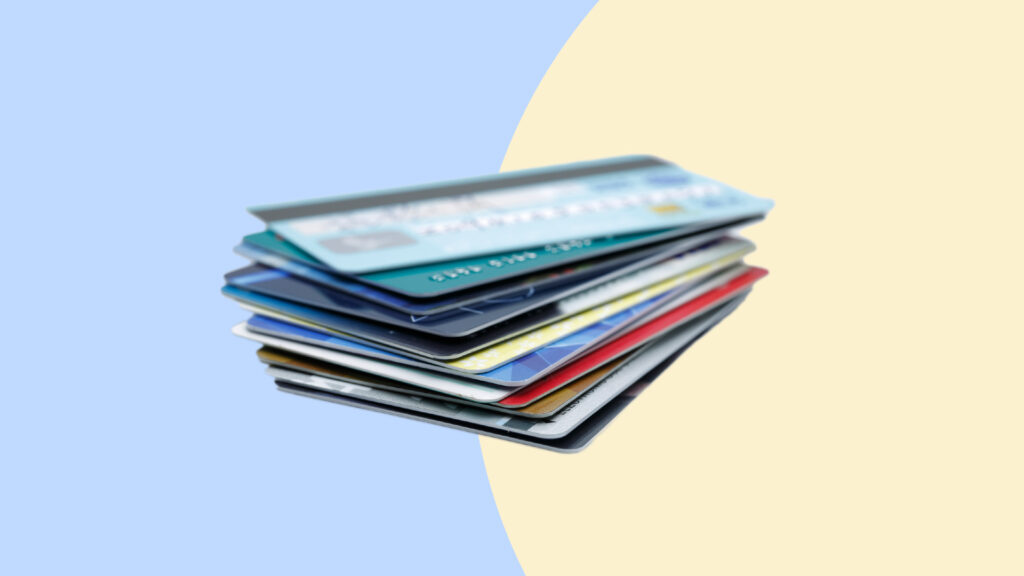
FAQs
-
Yes, Chase offers a variety of sign-up bonuses for their credit card products. For example, the Chase Freedom Unlimited® Card and the Chase Sapphire Preferred® Card typically offer sign-up bonuses. Travel credit cards such as the Southwest Rapid Rewards® Plus Credit Card, the Marriott Bonvoy Boundless® Credit Card and the UnitedSM Explorer Card also offer sign-up bonuses.
These bonuses are often in the form of cash-back points or Free Night Awards for hotel stays. To qualify for these bonuses, you'll need to spend a certain amount within the first few months of opening your account.
-
You can earn between $100 and $3,000 when you open a qualifying Chase account, including the Chase Total Checking, Chase Secure Banking, Chase Private Client and Chase Business Complete Checking. While currently, only Chase Private Client offers a bonus that high, you might be able to earn a total of $2,000 by opening a few cards and deposit accounts. You may be able to earn $50 or more for making referrals, as well.
To get a credit card bonus, you typically need to spend a certain amount within the first few months of opening your account. To be eligible for a sign-up bonus for a bank account, you might need to complete a few extra steps, such as signing up for an account through a partner link and setting up direct deposit.
-
Sign-up bonuses are usually a one-time offer, and you'll need to be a new cardholder to receive the bonus. With Chase cards, you might be able to get a sign-up bonus multiple times, but you'll need to have canceled your card. There's also a waiting period before you can swoop in on a sign-up bonus for the same card, which is usually 24 months. Chase also limits the number of Chase credit cards you can open within 24 months.
You could earn multiple Chase sign-up bonuses by opening several Chase accounts and cards around the same time. For example, you could open a checking account, personal credit card and business credit card.
-
Chase currently has a number of promotions available, and we’ve compiled a full round-up of Chase promotions above that include various credit card sign-up bonuses as well as for checking accounts.
